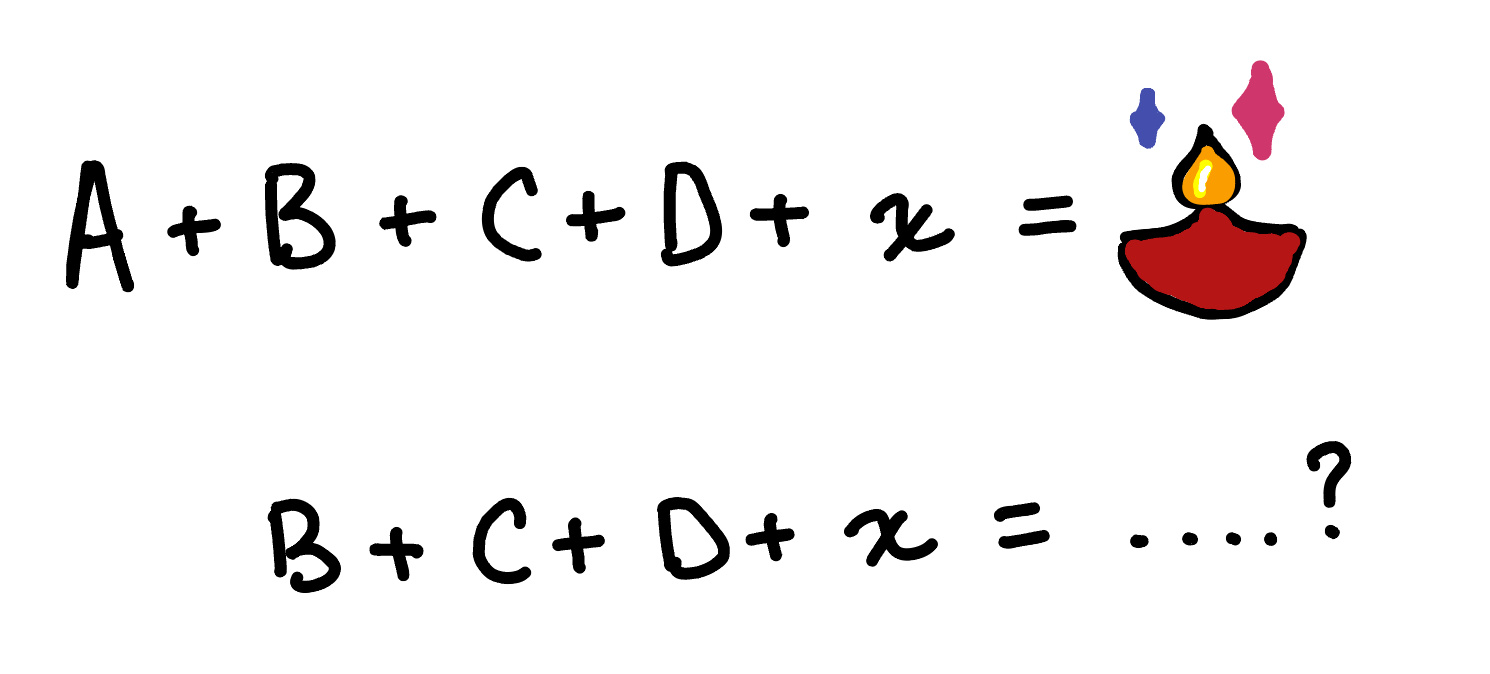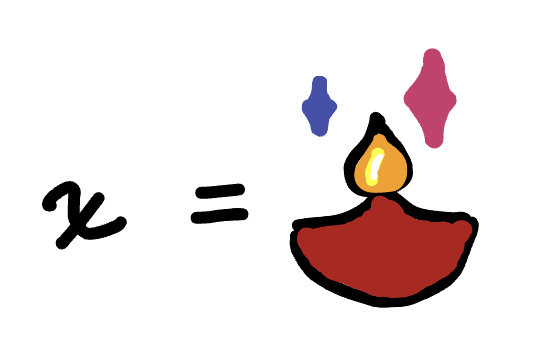The celebration equation
My sister moved from our home in Canada to the United States two months ago. In the excitement of her new beginnings, I'd forgotten to prepare myself for my new beginning; the one where we no longer had the same definition of home. As Diwali approaches, I find myself thinking about what it means to be celebrating Diwali "at home" this year.
As my mummy and papa have both seen a true Indian Diwali, I grew up with descriptions of Diwali as a grandiose, colourful and indulgent celebration. When they tried transposing this spirit of Diwali into our home in Canada, they were - like many immigrants are - presented with challenges.
When my sister and I were in our elementary school years, my parents were tasked with getting us as excited for Diwali as we'd get for the Western holidays we'd hear about in school. Our proximate community also had very few Indian families, so celebrations had to be self-originated and deliberately created. It was a strange feeling being in a festive mood on Diwali when to everyone around me, the day was just like any other. These challenges have meant that my cognitive associations with "Diwali" are modest compared to the grandiose, colourful and indulgent spirit of my parents' memories. Instead, they are equally-formative memories explicitly tied to my home.
There is home in the noxious buzz around Diwali. The house is cleaned well, and the grocery shopping begins early. We go to the Indian store for the sweets we can't make, which come in festive boxes and line the top of the fridge. There is also home in the home-specific rituals my family has created. There are the lights: our home is decorated with coloured string lights (which our neighbours perceive to be "very early Christmas lights") and diyas surround the Bhagwan ji that sit in a wooden temple my papa made. My sister and I regularly raid the guest closet where my mummy keeps her old garments, light sparklers in the backyard before dinner. Despite our hunger, there is always contempt with the last sparkler fizzles out. There is a satiety to the day, in part produced by following it's habits.
While these traditions change occasionally, the feeling of Diwali is constitutive. But my sister's absence alters much, much more than a tradition this year. If Diwali were a math problem, her absence is like altering the entire equation.
So with Diwali is still centred around home, what will Diwali look and feel like this year?

The equation of Diwali. Some variability, x, already existed. But with the equation fundamentally having been changed, what does Diwali become?
There doesn't need to be an absolving of all traditions or dissent into anarchy of rituals. We'll need to lean more into x (the variability that already exists in our equation) because it will expand to take up more significance in this year's equation. As "x" is the thing we strive to mitigate in our lives, this won't come without resistance, sadness or difficulty. And perhaps that is okay. Perhaps embracing the possibility of continuous change, and the emotions that come with it, is a more sustainable way forward.
Thus, we have a broader metaphor for how to view change. Because I cushion variability by creating rituals and habits, I forget how much of life is truly variable. I try to minimize the uncertainty, the "x", in my day. On a micro level, this manifests as daily schedules, the same breakfast and similar walking routes. On a macro level, this looks like the same habits (+ resistance to lifestyle changes) or associations of places to memories. Upon reflection, I seem to strive for a life where x is insignificant.
But any change of any magnitude could happen at any time, making the possible values of "x" in our lives dizzying. When we visibly see or emotionally perceive a large change, we process it as the removal of a variable for our equations. Perhaps we can better prepare ourselves for change if we let "x" take up more space in our equations, so that it can subsume many magnitudes of change.

Perhaps this has always been the equation of Diwali.
So, I'm not sure with Diwali will look like this year. I suppose I never could. But as I reminisce, I hope holding tighter to my memories can help me give more agency to variability.





Please sign in
If you are a registered user on Laidlaw Scholars Network, please sign in